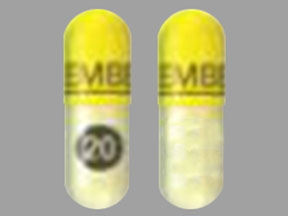Embeda Interactions
There are 811 drugs known to interact with Embeda (morphine/naltrexone), along with 18 disease interactions, and 1 alcohol/food interaction. Of the total drug interactions, 216 are major, 580 are moderate, and 15 are minor.
- View all 811 medications that may interact with Embeda
- View Embeda alcohol/food interactions (1)
- View Embeda disease interactions (18)
Most frequently checked interactions
View interaction reports for Embeda (morphine / naltrexone) and the medicines listed below.
- Abilify (aripiprazole)
- albuterol
- Ambien (zolpidem)
- amitriptyline
- aspirin
- atorvastatin
- baclofen
- Celebrex (celecoxib)
- clonazepam
- Cymbalta (duloxetine)
- duloxetine
- Flexeril (cyclobenzaprine)
- gabapentin
- Klonopin (clonazepam)
- levothyroxine
- Lipitor (atorvastatin)
- lisinopril
- Lyrica (pregabalin)
- meloxicam
- metformin
- Morphine Sulfate ER (morphine)
- Neurontin (gabapentin)
- omeprazole
- oxycodone
- pantoprazole
- ProAir HFA (albuterol)
- tizanidine
- trazodone
- Vitamin B12 (cyanocobalamin)
- Vitamin D3 (cholecalciferol)
Embeda alcohol/food interactions
There is 1 alcohol/food interaction with Embeda (morphine / naltrexone).
Embeda disease interactions
There are 18 disease interactions with Embeda (morphine / naltrexone) which include:
- hepatic dysfunction
- impaired GI motility
- infectious diarrhea
- prematurity
- acute alcohol intoxication
- drug dependence
- hypotension
- intracranial pressure
- respiratory depression
- gastrointestinal obstruction
- adrenal insufficiency
- liver disease
- renal dysfunction
- seizure disorders
- urinary retention
- arrhythmias
- hepatic/renal dysfunction
- biliary tract disease
More about Embeda (morphine / naltrexone)
- Embeda consumer information
- Compare alternatives
- Reviews (47)
- Drug images
- Side effects
- Dosage information
- During pregnancy
- FDA approval history
- Drug class: narcotic analgesic combinations
Related treatment guides
Drug Interaction Classification
| Highly clinically significant. Avoid combinations; the risk of the interaction outweighs the benefit. | |
| Moderately clinically significant. Usually avoid combinations; use it only under special circumstances. | |
| Minimally clinically significant. Minimize risk; assess risk and consider an alternative drug, take steps to circumvent the interaction risk and/or institute a monitoring plan. | |
| No interaction information available. |
See also:
Further information
Always consult your healthcare provider to ensure the information displayed on this page applies to your personal circumstances.


